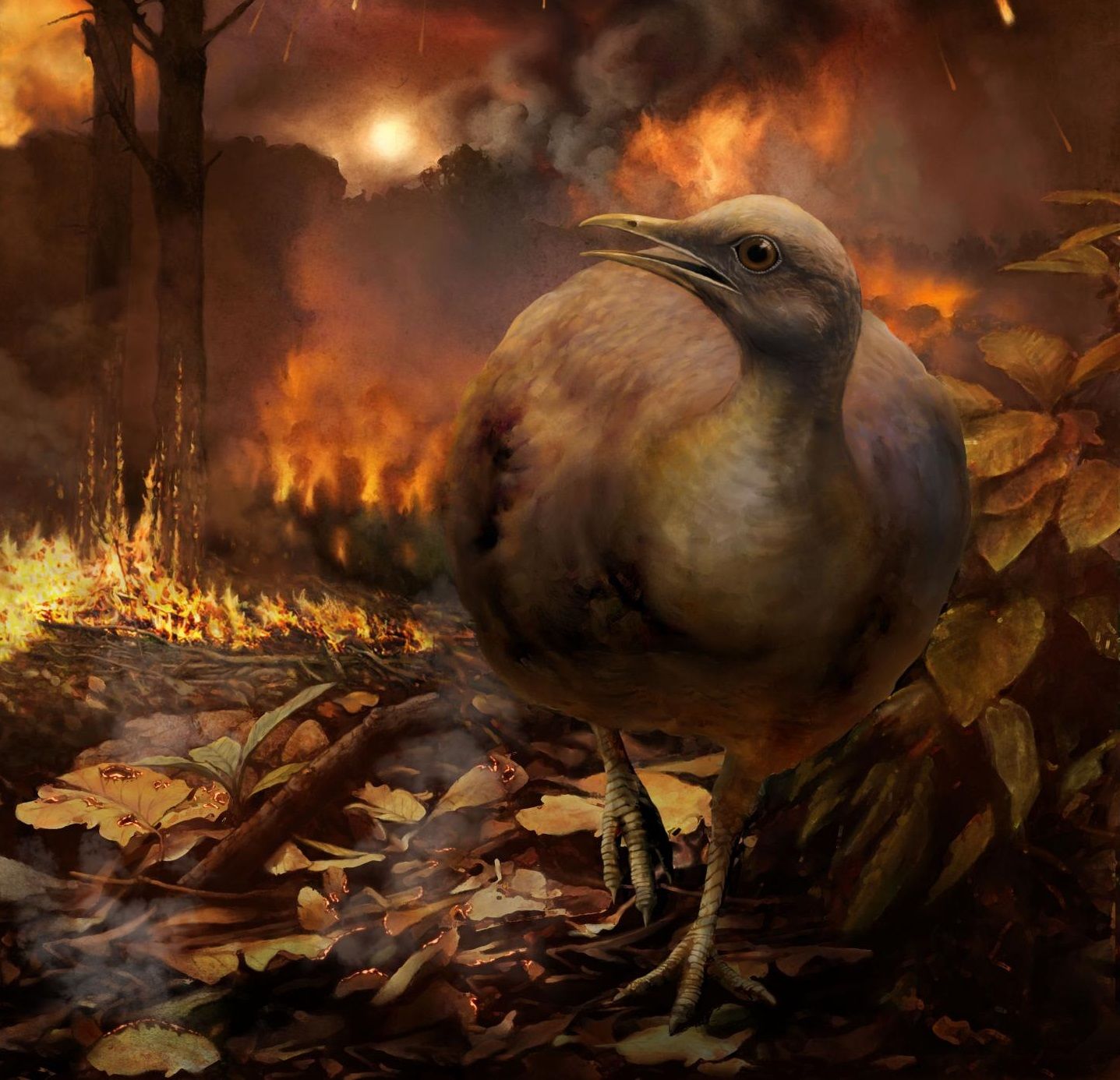
Sixty-six million ago an asteroid crashed into the Earth, with a force one million times greater than the most powerful atomic bomb. The impact and its after-effects ushered in a great extinction event that wiped out nearly three quarters of all plant and animal life. Among the victims were the dinosaurs, but birds were also badly affected.
It has long been debated how many birds—which evolved from dinosaurs—survived the extinction. Now, a new study published in the journal Current Biology, has found that most avians were wiped out as well, save for a handful of small, specialized ground-dwelling species, which are the ancestors of all birds today.
This is because the impact and its after-effects decimated the planet's forests, leading to the extinction of all tree-dwelling birds, according to an international team of researchers.
"Perching birds went extinct because there were no more perches," Regan Dunn, a paleontologist at the Field Museum in Chicago and a co-author of the study, said in a statement.
To make their findings, the team drew on a variety of different approaches.
First, they analyzed, the plant fossil record in North America, New Zealand, Japan and Europe—specifically microscopic fossils of pollen and spores—which helped confirm that forests around the world collapsed after the impact.
"After a disaster like a forest fire or a volcanic eruption, the first plants to come back are the fastest colonizers—especially ferns," Dunn said. "That's because ferns don't sprout from seeds, but from spores, which are much smaller—just a single cell. Spores are minuscule, the size of a grain of pollen, so they're easily dispersed. They get picked up by the wind and go further than seeds can, and all they need to grow is a wet spot."
When they looked at the fossil record in the different regions, they found the charcoal remains of burnt trees around the time of the impact, followed by an abundance of fern spores. This suggests that the wildfires produced by the asteroid, in addition to the resulting climate change—which lasted tens of thousands of years—devastated large plants, like trees, around the world.
Secondly, the researchers traced the evolutionary relationships of living birds to understand what happened to avian species before and after the impact, finding that the common ancestors of all birds most likely lived on the ground. Before the impact there appeared to be many tree-dwelling species, but after it, evidence of them seems to disappear.
But once the forests recovered, which took hundreds of thousands of years, birds did begin to move back into the trees.
"The ancestors of modern tree-dwelling birds did not move into the trees until forests had recovered from the extinction-causing asteroid," Daniel Field, lead author of the study from the University of Bath, U.K, said in a statement. "Only a handful of ancestral bird lineages succeeded in surviving the mass extinction event 66 million years ago, and all of today's amazing living bird diversity can be traced to these ancient survivors."
Today, birds are the most diverse and most widespread group of terrestrial vertebrate animals, numbering approximately 11,000 species.
Uncommon Knowledge
Newsweek is committed to challenging conventional wisdom and finding connections in the search for common ground.
Newsweek is committed to challenging conventional wisdom and finding connections in the search for common ground.
About the writer
Aristos is a Newsweek science reporter with the London, U.K., bureau. He reports on science and health topics, including; animal, ... Read more
To read how Newsweek uses AI as a newsroom tool, Click here.








